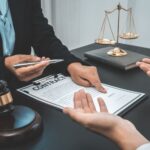Car accident injuries can be devastating multi-car pileups or fender benders that result in delayed soft tissue injuries. No matter what type of car accident you are involved in, FindLaw’s Car Accident section has helpful resources and information that you can refer to if you or someone you love was involved in one.
Must Read: what happens when a victim recants
These articles cover topics like the first steps after an injury, how to prove fault (or avoid it), car insurance claims, contributory negligence, car accident cases, and tips for hiring a car accident lawyer to protect your legal rights. Links to recalls of automobiles, safety driving, crash statistics and other information will be provided.
After an Accident
There are certain things you need to do when a car accident occurs, regardless of who is at fault. Documenting the accident is important to make sure you get fair compensation and avoid any acts that could increase or decrease your liability.
Documenting an accident involves calling the police, exchanging details, talking with witnesses, contacting your insurer, taking photos, getting property damage valuations, documenting your medical treatment, and contacting the police. You can reduce your liability by staying on the scene, checking on all passengers and drivers, and using caution and restraint during discussions.
Most popular: liability protections for members of llps and llcs
FindLaw’s pamphlet titled First Steps after an Auto Accident can be printed and kept in your car to ensure you don’t cause any additional expense, lose an opportunity to gather evidence or compromise your efforts to get compensation.
Evidence of Fault in a Car Accident
Insurance companies want to know who is responsible for a car accident. This decision is made based on a few factors. Understanding how liability is calculated can help you avoid paying for other people’s mistakes. In an insurance company’s decision, the police officer’s account of the incident, the state traffic laws and the type of accident may all play a significant role.
Never Miss: 10 key international environmental laws
The Police Report
A police officer who responds to an accident scene will likely file an Incident Report, particularly if they have suffered injuries. This report will include their observations of the scene as well as whether any party was issued a citation. A police report can be helpful in proving your story and helping to settle insurance disputes.
You can see any errors in the report if you have a copy. If you have evidence to prove that the officer made a mistake, factual errors can be corrected. It can be difficult to remove or change other officer’s opinions, but it is possible to add your statement. If you have concerns about the contents of the report, you can call the officer to discuss them and request an amendment. This request is usually limited to drivers.
Talk to the Insurance Company
Insurance companies might ask for your statements and take notes. This is not something to take lightly. You should be prepared and cautious about how you describe it. If the adjuster doesn’t ask, write down the most important details about the incident. Before you give your statement, it is a good idea to speak with an attorney. If the case progresses to litigation, the statement could be used against you.
Proving Fault
Fault determinations can also be affected by state traffic laws like the right-of-way. Some types of accidents can also be highly suggestive. Rear-end collisions can be very common. If you are hit from behind, the driver who hit you will usually be held accountable. A driver who makes a left-turn in an accident will likely be held responsible because cars in the same lane have the right to pass.
Common situations include both drivers claiming to have the green signal. It is important to clearly state that you were given the green light in an intersection accident involving stop lights. These disputes are best handled by witnesses and local businesses. There may be cameras in some cities that recorded the accident. A dash cam can be very useful in accident disputes.
Also Read: learn more about nyc bankruptcy regulation
It can be difficult to determine who is at fault in an accident involving a vehicle. In some cases, fault can even be divided between the parties. An experienced attorney can assist you in preparing and defending your case.


